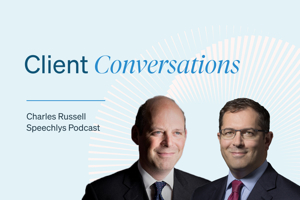The art of alternative investment scams
In an age of low-interest rates and the talk of economic recessions, investors are shopping around for returns. Art is increasingly being offered as a potential alternative investment, but what pitfalls does this present? Unfortunately, uninitiated investors can be misled or bullied into spending on art with no or relatively little prospects of success. In recent months, we have seen more and more predatory business practices sail close to the wind and sometimes cross that thin red line into fraud.
The types of fraud within the art market are manifold: ranging from a collector or artist being invited to send an artwork for an exhibition, which subsequently disappears; to art galleries trading while knowingly insolvent; to selling shares in art to investors for more than the art is worth; or to multi-millionpound cybercrimes. As the art market is becoming more sophisticated so are these fraudulent schemes. The authorities have historically had a limited interest in investigating these frauds as they tend not to affect the man on the Clapham omnibus but increasingly investment scams are being pushed on consumers encouraging them to buy dubious art of questionable value with the promise of future returns based on the market performance of a few very well-known artists.
The high-profile case involving the once-prestigious Knoedler & Co Gallery epitomises and offers a glimpse behind the scenes of the art world. This case subsequently led to the gallery’s demise amid lawsuits claiming the gallery had sold $80 million in forged works falsely attributed to some of the leading Modernists and Abstract Expressionists, including Jackson Pollock and Mark Rothko. The paintings came to the gallery’s inventory by way of an art dealer Glafira Rosales, who claimed that a Swiss collector who preferred to remain anonymous had consigned them. This Swiss collector never existed; instead, Rosales commissioned the paintings from a Chinese artist for a mere few thousand dollars.
Despite many of the subsequent lawsuits settling in 2016, there remains an interest in the case, which has recently turned into a blockbuster documentary – perhaps because so many details remain unknown and some of the settlements confidential. It raises important legal questions as to whose duty it is to undertake due diligence into the consignor of the artwork, investigate the authenticity of the artwork and research its provenance and whether the legal doctrine of caveat emptor is suitable, even when purchasers are advised by high-profile experts, collectors and museums.
However, it is difficult for absolute lessons to be learnt, given the sophistication behind some of the schemes and involvement of offshore corporate structures. A recent example involved two art investment companies, Wardells Design Limited and Camp Partners Limited, which fraudulently took over half a million pounds from investors. The companies were wound up in the high court in December 2020 and it transpired that between 2019 and 2020 alone, Wardells Design Limited and Camp Partners Limited had received £600,000 from investors who thought they were investing in works of art painted by renowned artists. In actual fact, the funds had been transferred from the companies’ bank accounts to offshore locations with investigators unable to trace them so it was too late to freeze accounts, despite the court accepting that the companies had been incorporated and used as vehicles for fraud, with their sole purpose of receiving monies wrongly obtained as investments from consumers.
Another alleged fraud case that has dominated the art market’s attention is that of prominent dealer Inigo Philbrick’s. He has been charged with wire fraud and aggravated identity theft. Philbrick is alleged to have defrauded clients by selling artworks he did not own and overlapping shares in the same art in a quasi Ponzi-scheme. He is also alleged to have given false representations and used fraudulent contracts to inflate the value of the art he sold.
Art cases do not only occur onshore; they also set sail. The Park West Gallery Inc. faced multiple lawsuits regarding the authenticity of artworks auctioned by Park West on certain cruise ships. Cruise passengers argued that the art they purchased in onboard auctions were misrepresented as original art created by artists Salvador Dali, Pablo Picasso and Rembrandt, when, in fact, some were forgeries.
More recently, the Covid-19 pandemic has sparked a rise in online fraud and presented fraudsters with an opportunity as people work from home and spend more time online. During the sales negotiations between the Rijksmuseum and a London art dealership of a £2.4 million John Constable, cybercriminals impersonated the dealership and duped the museum into sending the payment to the wrong bank account.
The above cases illustrate just a handful of the opaque practices of the art market. While the 5th Anti-Money Laundering Directive aims to curb such transactions by implementing rigorous customer and source of funds due diligence in the art market, there is still an information in-balance between the so-called art experts and the innocent investors looking to diversify their asset pool. While conflicts of interest remain rife and there is a lack of independent and verifiable market data, without further regulatory oversight (either from within or externally) the art market will continue to attract unscrupulous practices and put investors’ funds at risk.
This article was first published in the ThoughtLeaders4 FIRE Magazine







































